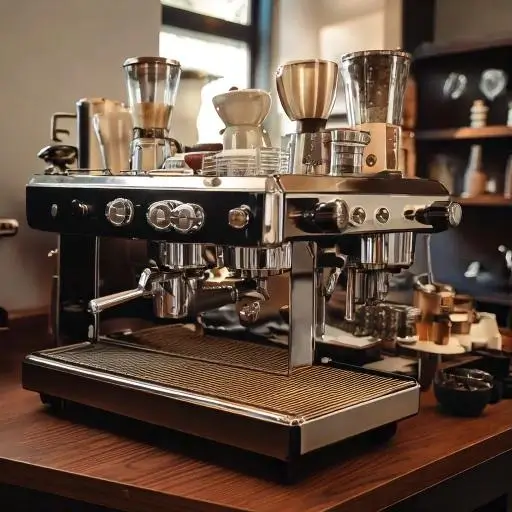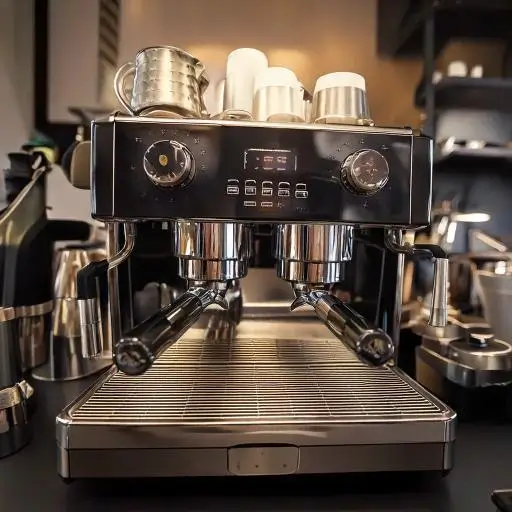In the bustling world of coffee culture, the right equipment can make all the difference between a mediocre cup and an extraordinary brew. For business owners in the coffee industry, choosing the right commercial coffee equipment is not just about functionality; it’s about setting the stage for customer satisfaction and operational efficiency. From espresso machines that deliver the perfect shot to grinders that ensure every bean is ground to perfection, the tools you select will shape the quality of your offerings and the experience you provide to your patrons.
Understanding Business Needs
Selecting the right commercial coffee equipment for your business, the first step is to understand your specific needs thoroughly. This involves evaluating the type of coffee service you plan to offer, the volume of customers you expect to serve, and the overall atmosphere you want to create. Are you a bustling café aiming to serve high volumes of espressos, lattes, and specialty drinks, or are you a cozy coffee shop focused on providing a curated selection of gourmet brews? Each scenario requires different tools and machinery.
Start by analyzing your menu. If you aim to offer a diverse selection of coffee beverages, investing in high-quality espresso machines, grinders, and brewers is essential. For establishments with a focus on specialty coffee, consider equipment that allows for precise brewing methods, such as pour-over systems or cold brew setups. On the other hand, if your business relies on speed and efficiency, you may want to prioritize high-capacity machines that can handle quick turnarounds without sacrificing quality.
Essential Types of Commercial Coffee Equipment
When it comes to running a successful coffee business, having the right commercial coffee equipment is paramount. The choices you make can significantly impact both the quality of your brews and the efficiency of your operations. Here are some essential types of commercial coffee equipment you should consider:
- Espresso Machines: These are the heart of any coffee shop that serves espresso-based drinks. There are different types of espresso machines available, including manual, semi-automatic, and fully automatic models. Consider factors such as the volume of coffee you expect to produce, your barista’s skill level, and the space available in your shop.
- Coffee Grinders: Freshly ground coffee beans are crucial for achieving exceptional flavor. Commercial grinders come in various types, including blade and burr grinders. Burr grinders are preferred for their ability to produce uniform particle sizes, which results in better extraction during brewing. Look for grinders that can handle large volumes and ensure consistent grind sizes for various brewing methods.
- Brewing Equipment: Depending on your menu, you might require different brewing equipment, such as drip coffee makers, pour-over setups, or cold brew systems. Commercial drip coffee makers are designed to brew large quantities quickly, while pour-over methods can add a personalized touch to your offerings. Cold brew systems, on the other hand, are becoming increasingly popular for their smooth, low-acidity coffee.
- Coffee Brewers and Percolators: For establishments that serve large groups, consider investing in commercial coffee brewers or percolators. These machines can brew multiple pots of coffee at once, ensuring that your customers are never left waiting.
- Milk Frothers and Steamers: For cafes that serve lattes, cappuccinos, and other milk-based drinks, a good milk frother or steamer is essential. These tools allow you to create creamy, textured milk that elevates the quality of your beverages. Many espresso machines come with built-in steam wands, but standalone frothers can offer more versatility.
- Water Filtration Systems: Quality water is a key ingredient in brewing coffee. Investing in a good water filtration system can help remove impurities and improve the taste of your coffee. This not only enhances flavor but also prolongs the life of your equipment by reducing mineral buildup.
- Display and Storage Equipment: Lastly, don’t forget about storage and display equipment. Glass coffee jars, condiment stations, and pastry displays can enhance the customer experience while keeping your workspace organized. Proper storage for coffee beans ensures they remain fresh and flavorful.
Commercial Coffee Equipment

Launching or upgrading your coffee business, investing in the right commercial coffee equipment is crucial. The equipment you choose will not only affect the quality of the beverages you serve but also influence the efficiency of your operations and the overall customer experience. Here are some essential pieces of equipment to consider when outfitting your coffee shop, café, or restaurant.
- Espresso Machines
- Grinders
- Brewing Equipment
- Accessories and Tools
- Point of Sale (POS) Systems
Commercial Coffee Brewing Equipment
This equipment not only affects the quality of the beverages you serve but also influences your operational efficiency and customer satisfaction. With a plethora of options available, understanding the different types of brewing equipment can help you make informed choices tailored to your business needs.
First and foremost, consider the type of coffee you want to offer. If you’re looking to serve espresso-based drinks, an espresso machine is essential. Commercial espresso machines come in various sizes and functionalities, ranging from semi-automatic to fully automatic, each catering to different levels of expertise and volume demands. A high-quality espresso machine can produce rich, flavorful shots that form the base of lattes, cappuccinos, and more.
Commercial Coffee Roasting Equipment
You’ll want to consider the type of roaster that best fits your operational needs. There are two main types of commercial coffee roasters: drum roasters and hot air roasters. Drum roasters are favored for their ability to produce rich, complex flavors due to their slower, more even roasting process. They typically accommodate larger batches, making them ideal for businesses expecting high demand. On the other hand, hot air roasters can be a great choice for smaller operations or those just starting out, as they are generally more affordable and offer a quicker roasting time while still delivering a clean taste profile.
Commercial Coffee Shop Equipment
Establishing a thriving coffee shop, the right commercial coffee equipment is paramount. The equipment you choose not only impacts the quality of the beverages you serve but also affects the efficiency of your operations and the overall experience you provide to your customers. Starting with the backbone of any coffee shop, an espresso machine should be at the top of your list. Options range from compact, semi-automatic machines ideal for smaller operations to larger, fully automatic models that can handle high volumes with ease.
Next, consider grinders, as freshly ground coffee beans are essential for brewing rich and flavorful coffee. Burr grinders are the gold standard, providing consistent particle size and enhancing the taste of your coffee. Additionally, brewing equipment such as drip coffee makers, pour-over devices, and cold brew systems cater to diverse customer preferences and can broaden your beverage menu.
Commercial Cold Brew Coffee Equipment
Cold brew coffee, known for its lower acidity and rich flavor profile, has gained immense popularity among coffee enthusiasts, making it crucial for establishments to have the proper tools to brew this delicious beverage consistently.
Start by considering the brewing method that best suits your business’s needs. There are several options available, including immersion brewers, which steep coarsely ground coffee beans in cold water for an extended period, typically 12 to 24 hours. These brewers can produce a rich and concentrated cold brew that can be diluted with water or milk, allowing for versatile serving options. Alternatively, you may opt for a cold brew tower, which utilizes gravity to drip cold water over coffee grounds, resulting in a smooth and balanced cup. These towers not only offer a stunning visual appeal but also allow for precise control over the brewing process.
Next, think about the scale of your operation. If you have a high volume of customers, investing in larger commercial brewing systems may be necessary to keep up with demand. Some models can brew multiple gallons at once, ensuring that you can serve cold brew on tap without long wait times. Additionally, consider equipment that facilitates easy cleaning and maintenance, as freshness is key to serving quality coffee.
